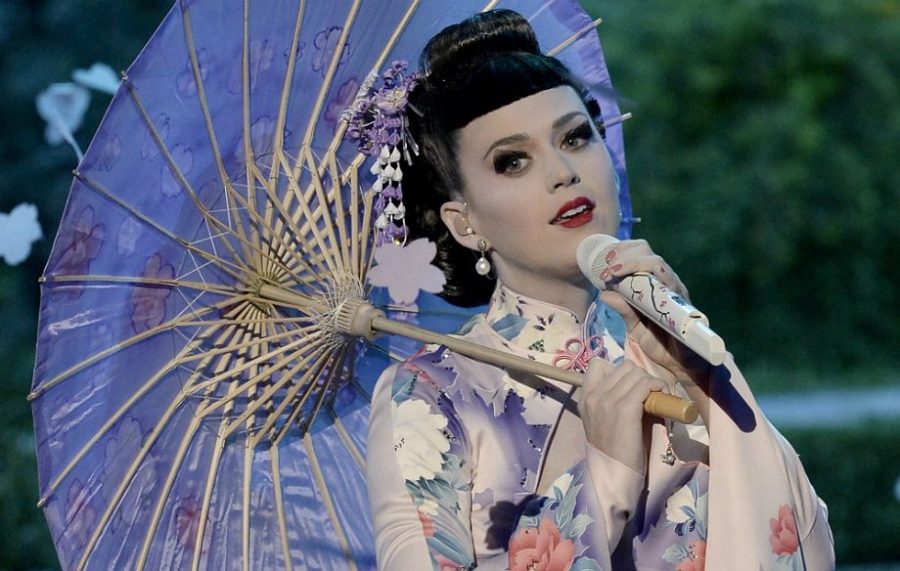Culture Appropriation Poisons the Music Industry
October 18, 2017
Culture appropriation in the music industry has been a problem for years, and it doesn’t seem to be getting any better. Culture appropriation is defined by the Cambridge Dictionary as, “the act of taking or using things from a culture that is not your own, especially without showing that you understand or respect this culture.” Many extremely well known artists in the music industry are guilty of culture appropriation in different forms.
Cultural appropriation is present in the music video of Beyonce and Coldplay’s song, “Hymn For The Weekend.” Now don’t get me wrong, I am in love with Queen Bey and Coldplay is one of my favorite bands of all time. I did however, fail to find the reason for them to shoot their music video for this song in Mumbai, India. The video features Chris Martin and Beyonce dressed as a Bollywood actress in many scenes around India. There are snippets of the Hindu Holi Festival of Colors. Although many of the true cultures and people of India were shown in the video, I think one thing above all marks this video as a case of culture appropriation; the song has no apparent association with Indian culture whatsoever, other than the music video. “When I first saw the ‘Hymn for the Weekend’ video, I thought the fact that it took place in India was irrelevant and odd because neither of the artists are Indian,” sophomore Ella Say said. Another reason is that neither of the artists are Indian. Because there are no references to Indian culture in the lyrics of the song, and neither of the artists are of Indian decent, the music video for this song is a prime case of cultural appropriation.
Katy Perry has also faced great criticism throughout the years for cultural appropriation in her music videos and performances. First off, in Perry’s music video for her song “Dark Horse,” she was featured in various stereotypical Egyptian-esque costumes that were completely inaccurate representations of real Egyptian culture. The sets of her music video were supposed to look like the throne of Cleopatra and Egyptian royal historical figures, but the execution was extremely cliche and seen as offensive to many. Also, in one part of the video, a background dancer can be seen wearing the Arabic word for God on a pendant. A petition to remove the video from YouTube because of this offensive clip was started by Shazad Iqbal and signed by over 60,000 people. “Using the name of God in an irrelevant and distasteful manner would be considered inappropriate by any religion” Iqbal said. In addition, At the 2013 American Music Awards, Perry performed dressed as a Geisha and used many Asian cultural images to enhance the costume. Jezabel.com described Perry’s costume as “a mix between a kimono and a Chinese cheongsam.” It was also noted that the costume showed a lot of extra skin that was not characteristic for either of the garments it was modeled after. “Even in my intention to appreciate Japanese culture, I did wrong with a performance. And I didn’t know that I did it wrong until I heard people saying I did it wrong,” Perry said in an interview with DeRay McKesson, in an attempt to justify her costume and theme choice for her performance. Perry’s explanation defends herself, but it is not enough to excuse the offensive theme of her performance. She admitted to having no idea her display was offensive before being told so. The fact that making sure her methods for using aspects of different cultures were not offensive didn’t cross her mind at all before the damage had been done is extremely disappointing and a blatant example of cultural appropriation.
Justin Bieber’s inability to sing the Spanish lyrics of ‘Despacito’ live despite being featured on the recorded track is one more example of cultural appropriation in the music industry. Even further, Miley Cyrus supposedly making twerking famous during her 2013 VMA’s performance, even though the dance move existed in the African American Atlanta club scene for years before is another infamous instance of cultural appropriation. I do not think the problem of stealing cultural symbols without the right intent, research, and care put in will ever go away. However, as our world becomes more aware and accepting to the vast variety of cultures it has to offer, it is important to to recognize the difference between culture appropriation and appreciation. Music has the power to reach millions of people in many different ways. If we start by being aware of cultural appropriation in the music we listen to in our community, it could lead to more care taken by people in all aspects of life.








